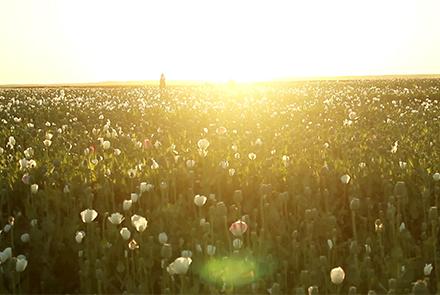The Ministry of Counter Narcotics on Monday raised concerns over the increase in poppy cultivation in the country, saying this year, the trend has increased by 11 percent against last year.
Addressing a press conference in Kabul, deputy minister of counter narcotics Jawed Ahmad Qayeem said insurgents are taking advantage of opium production and smuggling.
Meanwhile, the United Nations Office on Drugs and Crime (UNODC) said in its latest Afghanistan Opium Survey that factors such as political instability, a rise in security threats and unemployment appear to be forcing farmers to resort to cultivating poppies.
According to the Ministry of Counter Narcotics, the UN survey states that last year drugs from Afghanistan smuggled and sold abroad totaled an estimated $7.5 billion USD.
“Forty six percent of farmers in 2017 said they cultivated continuously, meaning that they also cultivated poppies over the past two or three years. Fifty four percent said they have just started to cultivate or did not cultivate in recent years while 57 percent of the annual income of those cultivating continuously comes from drugs,” said Qayeem.
UNODC director Mark Colhoun said problems around implementing the law, political instability and unemployment have been the main factors behind the increase.
But the Afghan government says that the high demand on global markets has been a key factor.
“Drug smugglers, mafia groups, Taliban and all the terrorist groups have close links with each other when it comes to drugs,” said deputy CEO spokesman Jawed Faisal.
Last year over 9,000 tons of drugs were produced in Afghanistan of which, 8,000 tons were turned in to heroin.


